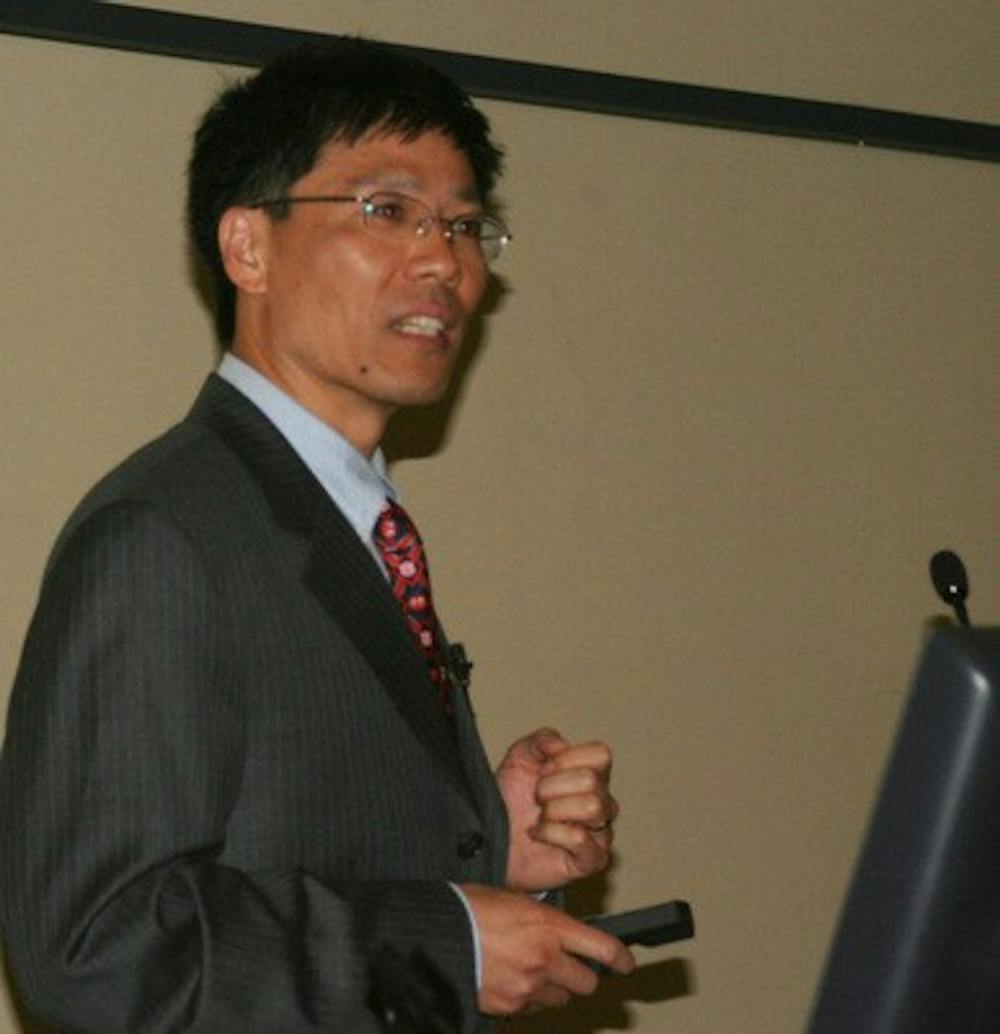The Auburn Forestry Department welcomed Wei-Jun Cai as a guest speaker during the Weaver Lecture Series last Friday.
The lecture series is sponsored by the Earl H. and Sandra H. Weaver Endowment.
Cai is a professor of Marine Sciences at the University of Georgia in Athens, Ga.
Cai's lecture, "The Role of the Coastal Zone in Global Change Research," explained the importance of preserving coastal zones throughout the world to ensure the continuation of the resources they provide.
"The coastal zone is a zone of transition between the purely terrestrial and marine components on Earth's surface - a place of diverse natural systems and resources," Cai said.
The coastal zones provide resources like oil, gas, crops and more than 90 percent of global fisheries. These zones are areas of transport, tourism and industry, explained Cai.
"The resources of the coastal zone are crucial to our societal needs. The coastal zone is a repository of biodiversity and ecosystems that support the function of Earth's systems," Cai said.
Cai presented the six most pressing forms of global change that are affecting our coastal zones: increase of nutrient flux, damming, increase of global temperature, loss of wetland, increased CO2 in the atmosphere and ocean acidification.
Increased global temperatures are a major concern in the coastal zones.
"We are in the warmest period in the past millennium," Cai said.
Ocean acidification has been a concern of the scientific community but is recently becoming a concern for the general community.
"Ocean acidification occurs when the CO2 in the atmosphere is taken up by the ocean and the pH of the ocean is lowered," Cai said. "This affects carbon-based species like shellfish."
The Clean Water Act is an example of a policy created to prevent future problems and deal with the consequences communities face .
However, some policies can do more harm than good.
For example, corn-based bio-fuel has a negative impact on coastal zones.
"My mom's SUV can run on bio-fuel, which is one of the reasons she purchased the car," said Michelle Thomas, a senior in human development and family studies. "I think it's interesting that the negative effects of bio-fuel on the environment are just now being realized."
Cody Watts, a senior in rehabilitation services, has noticed tips about the environment around campus.
"I think Auburn has been making a solid effort to increase environmental awareness in the past year," Watts said. "I always notice the screen savers on the computers that have easy ideas for helping the environment."
Cai's advice is the scientific community and public should work together to make everyone aware that global change is a problem now, not just something to be concerned about in the future.
Do you like this story? The Plainsman doesn't accept money from tuition or student fees, and we don't charge a subscription fee. But you can donate to support The Plainsman.





